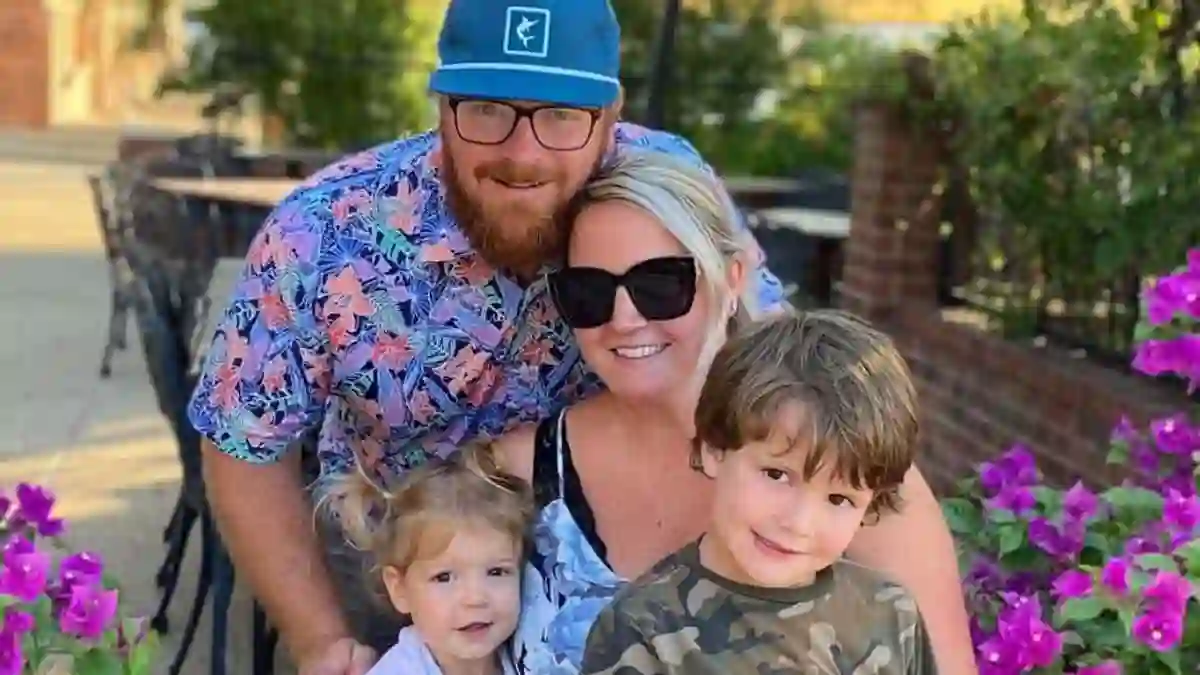What started as a typical July week turned into a nightmare for many families across central Texas.
Torrential rainstorms that began around July 3 have now left a trail of destruction—taking more than 50 lives, sweeping away homes, and leaving an entire state reeling from the devastation.
Beloved Soccer Coach and His Wife Tragically Among the Victims
One of the most heartbreaking losses came out of Kerrville County, where local soccer coach Reece Zunker and his wife Paula were confirmed dead in the floodwaters.
The couple’s two young children are still missing, adding to the heartbreak felt by their community.
Their home, according to a relative, was seen floating down the Guadalupe River—a horrifying image that captures the sheer force of the flood.
The Tivy Boys Soccer Team, where Reece once coached, posted a moving tribute calling him the heart of their program. “
He rebuilt the soccer program and left a legacy,” the post read, adding that his passion for the sport, his students, and his family will never be forgotten.
Families Left in the Dark as Warning Systems Fail
As more stories like Reece and Paula’s surface, frustrated residents are asking a painful question—why weren’t we warned sooner?
On July 3, weather officials initially categorized the storm as “moderate.”
A more serious flash flood warning wasn’t issued until 1 a.m. the next day, and a flash flood emergency followed at 4:30 a.m.—by then, water was already rushing into homes.
For many Texans, those critical hours made the difference between survival and tragedy.
The delay in alerts has become a point of anger, especially as the death toll continues to climb and dozens remain unaccounted for.
More Rain on the Horizon for Already Struggling Communities
Unfortunately, the danger isn’t over yet.
The National Weather Service has extended a flood watch through Sunday for several hard-hit counties—including Kerrville, where the majority of fatalities have occurred.
Meteorologists are warning that another two to four inches of rain is expected, with some areas possibly receiving up to 10 inches.
The warning spans a large portion of central Texas, including counties like Guadalupe, Travis, Medina, and Williamson.
Rising Anger Over Federal Cuts and Disaster Preparedness
Amid growing frustration, attention has turned to staffing cuts at major federal agencies.
The National Weather Service, which helps monitor severe weather, recently laid off nearly 600 employees due to budget cuts under Donald Trump’s administration.
FEMA and NOAA—agencies critical to disaster response—have also faced funding threats under Trump’s proposed budget.
Though efforts to rehire around 100 positions are underway, many fear that this downsizing has severely impacted the speed and accuracy of emergency warnings during this disaster.
Governor Abbott Calls Flooding Aftermath “Pure Horror”
During a weekend visit to Camp Mystic, Governor Greg Abbott described what he saw as “pure horror.”
The site, once a scenic spot for kids to camp, became one of the central points of the flooding disaster.
Dozens of children were on-site when the flooding struck, forcing emergency evacuations and rescue operations.
The Grim Numbers Keep Climbing
As of Sunday, officials have confirmed at least 52 deaths, including 15 children, making this one of the deadliest flood events in recent Texas history.
The Guadalupe River—which overflowed in the early hours of July 4th—has been central to the destruction, especially in Kerrville County.
Search and rescue teams continue their work along the riverbanks, hoping to locate the dozens still reported missing.
With more rain expected, time is running out, and the outlook remains dire.
What’s Next?
Texans are now left to mourn, search, and recover.
But this tragedy is also igniting bigger conversations—about climate preparedness, funding for emergency services, and the critical importance of timely communication.
For communities like Kerrville, the healing will take time—but the calls for accountability are already getting louder.
